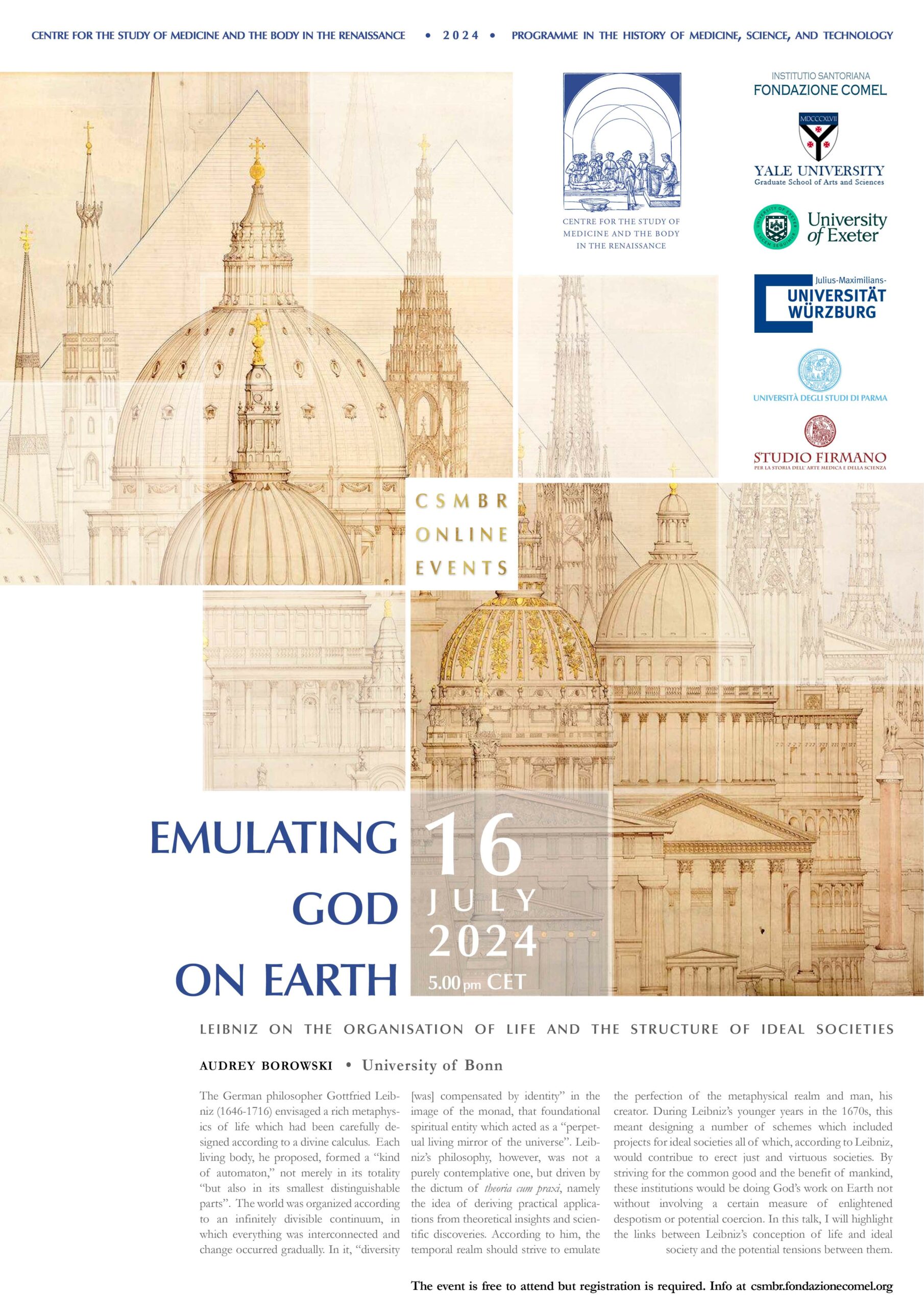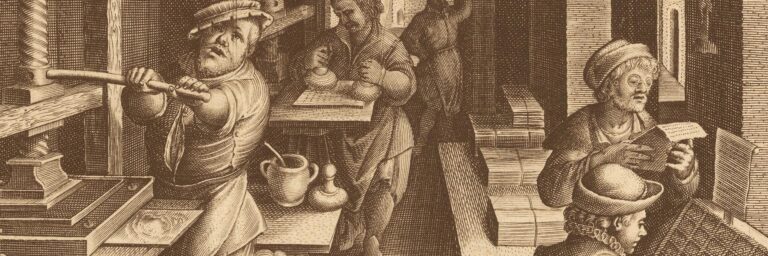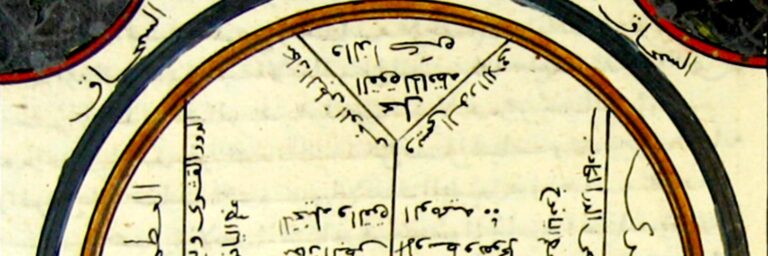Emulating God on Earth


Emulating God on Earth
Leibniz on the Organisation of Life and the Structure of Ideal Societies
Audrey Borowski
16 July 2024 – 5 PM (CEST)
The German philosopher Gottfried Leibniz (1646-1716) envisaged a rich metaphysics of life which had been carefully designed according to a divine calculus. The whole organic world was borne out of “the workmanship of God”: Each living body, he proposed, formed a “kind of automaton,” not merely in its totality “but also in its smallest distinguishable parts”.
Each minute machine unfolded harmoniously according to an internal law, a unique telos which itself expressed the “predetermined plan” governing the whole. The world was organized according to an infinitely divisible continuum, in which everything was interconnected and change occurred gradually. In it, “diversity [was] compensated by identity” in the image of the monad, that foundational spiritual entity which acted as a “perpetual living mirror of the universe”, albeit from its own particular perspective.
Leibniz’s philosophy, however, was not a purely contemplative one, but driven by the dictum of theoria cum praxi, namely the idea of deriving practical applications from theoretical insights and scientific discoveries.
According to him, the temporal realm should strive to emulate the perfection of the metaphysical realm and man, his creator.
By striving for the common good and the benefit of mankind, these institutions would be doing God’s work on earth – not, that is, without a certain measure of enlightened despotism or potential coercion. In this talk, I will highlight the continuity between Leibniz’s conception of life and that of an ideal society and the tensions that this generates in his thought.
About the Speaker ...
Audrey Borowski is a Research Fellow at the Centre for Science and Thought in Bonn and an Associate Member of the Leverhulme Centre for the Future of Intelligence in Cambridge. She completed her doctorate (D.Phil) in the History of Ideas at the University of Oxford. Audrey’s research background lies at the intersection of philosophy, history and science and in the last few years she started working more closely on the philosophical history and philosophy of computing and AI. Her book Leibniz in his World: The Making of a Savant (1672–1679) has come out in 2024 for Princeton University Press, see here. Her special issue on ‘Universal Histories’, co-edited with Nicholas Halmi (Oxford) recently appeared in the Intellectual History Review. Dr Borowski has been awarded numerous grants, including from the Royal Society in London, the German Academic Exchange Service (DAAD), and the Wyndham Deedes Memorial Trust, to name just the most prominent.







